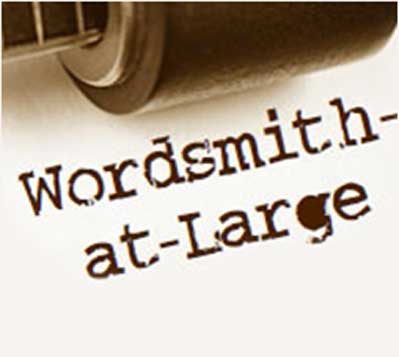From what sources do you get your news these days? Newspapers? (I hope that’s a “yes.”) On the Internet? Major TV networks? Cable news? Radio talk shows? All of the above? None of the above?
No matter what your answer to the initial question, here’s another one to consider: Do you trust the reporting? A whistleblower (my but they’re popular these days) at CNN said that network was purposefully biased. The venerable New York Timeshas come under fire for slanting its reporting. And Fox News has long been touted as a mouthpiece for the conservative bent. Are you 100% certain that whatever you’re listening to or reading is accurate, factual, well-researched, and verified by multiple sources? Or are you just hearing political party talking points and/or a host’s opinion on stories of the day? Kinda hard to tell sometimes isn’t it?
There’s no doubt we all like red meat (the news kind, not the foodstuff). Whatever our own opinions are, it’s always nice to hear someone else who purports to be in the know verify our beliefs. That certainly explains why certain news outlets flourish – on both ends of the political spectrum.
It wasn’t always so, you know. Those of a certain age will no doubt recall seeing the avuncular Walter Cronkite and/or the sage countenances of Chet Huntley and David Brinkley describing events of the day in the 1960s on the CBS Evening Newsand cleverly-named Huntley-Brinkley Reporton NBC.
Broadcasters back then came up through the ranks as newspaper writers. They were taught to make sure only the facts were presented and to ensure those facts were true. Thus, even though Cronkite was finally outed as quite a liberal cause supporter long after his tenure on TV, when it came to reporting the news, even if there were hints along the way, the average viewer really had no idea how he leaned. Chet Huntley once told an interviewer that he took great pains to ensure that his personal views remained just that and did not adversely influence his reporting. Ditto David Brinkley. (As an aside, Brinkley had one of the great all-time lines about politicians that was as true in his day as it is now. He said, “Washington, D.C. is a city filled with people who believe they are important.”)
The Vietnam War and Watergate probably did more than anything to change the reporting of news. Investigative journalism became the mantra of a new generation of reporters and broadcasters. And slowly but surely, over the course of several decades, what we tend to get now is a viewpoint rather than facts so we can make up our own minds. Our divisiveness as a nation is reflected and pretty much encouraged by what is fed to us via our favorite form of communication. (See “red meat” comment.)
With that in mind, I’m thinking it would really be fun to start my own “news” channel. Given today’s competition, it can’t be that hard. With traditional Who, What, When, Where, How, and Why journalism seemingly often a thing of the past, what better time to jump into the fray and make a few bucks?
I wouldn’t try to appeal to any one group or political “base.” I’d simply suggest to any reporters that they just make things up about anybody and anything. You know, somewhat like the supermarket tabloids sometimes (always?) do – only classier of course.
My reporters would just shoot from the hip and hide behind the 1stamendment right to say whatever we want. Why does anything we report have to be true? It’s the accusations that make the news, right? We could report, “Nancy Pelosi Used to be a Man!” Or, “Donald Trump Inks Trade Deal with Martians!”
The news doesn’t even have to be political. “Chinese Discover Harvest Moon Made of Cheddar Cheese!” Or “Corporations Say ‘Customers Come First!’” You know, outlandish statements like that. We could even resurrect a golden oldie: “Government Says It’s Here to Help!”
Pretty much anything would be fair game. I suppose at the end of each report we’d have to say or print something to the effect of “Hope you enjoyed the farce” to cover ourselves. But it would be whispered or written in miniscule-size type.
Hey, that’s going one step further than many current news organizations, isn’t it? They don’t let facts get in their way. One of my favorite all-time movies is “It’s a Mad, Mad, Mad, Mad World.” Today, when it comes to national reporting outlets, maybe it’s time for a sequel. No need to change the title.
©MMXIX. William J. Lewis, III – Freelance Writer


Leave A Comment